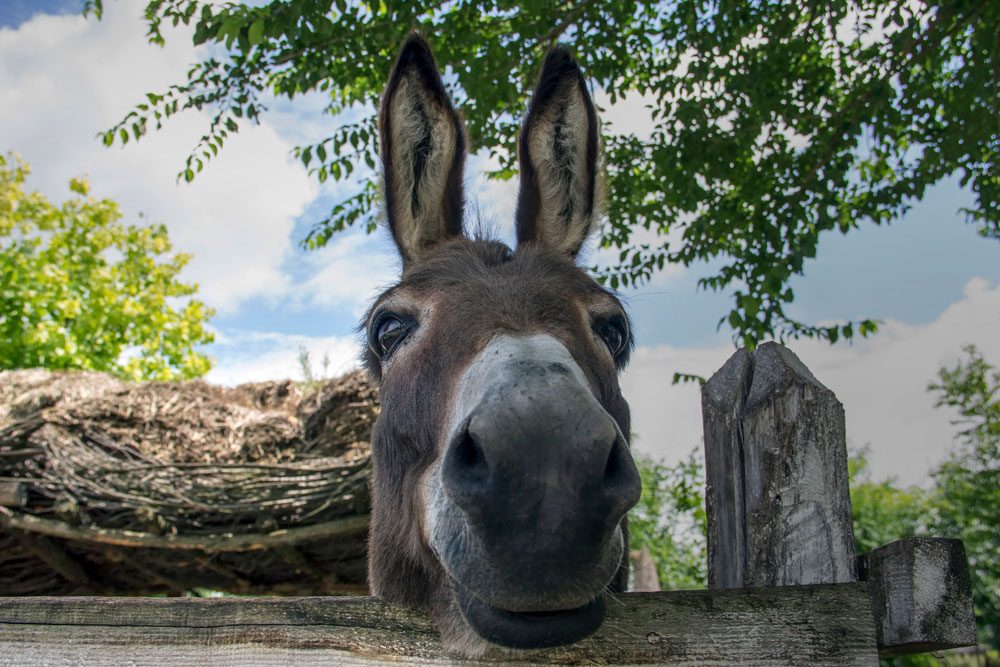
Being around horses—whether you own a horse, work with horses or are simply fascinated by them—can be a rewarding experience. Amy McLean, PhD, an assistant professor in the Department of Animal Science at the University of California, Davis, understands that feeling firsthand.
As the instructor in UC Davis Continuing and Professional Education’s new online courses in equine science and someone who grew up around all species of equids (horses, donkeys and mules), McLean finds the bond that develops between horse and human to be the most rewarding part of working with them. But in order to get the most from the experience, it’s essential to understand your animal.
Do You Speak Horse?
“The most important thing I’ve learned about equine psychology or behavior is, the animal is really a mirror image of their human counterpart,” said McLean. “We like to think the animal is doing what we ask, but it’s really more of a partnership—like dancing.”
McLean explained that equines are able to pick up on human emotions and heart rates, something she says most people don’t understand. “A lot of times the behavior we see in horses is in response to how the person behaves, so we look at facilitating human behavior change as opposed to equine behavior change.”
She believes being able to “speak horse” and understand what horses are thinking—what they want and how to properly meet their needs—will not only strengthen your bond, but is key to your animal’s wellbeing.
3 Reasons Why Understanding Equine is Important
Here are McLean’s reasons why having a holistic understanding of equine is so important for horse, donkey and mule owners:
1. To provide proper care Understanding equine behavior and psychology impacts all aspects of their care. Misunderstanding behavioral signs can impact riding, send mixed signals, result in overfeeding or underfeeding, and lead you to believe your horse is misbehaving. When it’s constantly a struggle to provide proper nutrients, understand reproduction and pregnancy, interact with, ride or groom your horse, then the relationship is going to be compromised. And generally it’s the horse that suffers the most.
2. To enjoy your partnership When you have an opportunity to improve your understanding of a living creature, it improves that relationship. Making the decision to bring a horse into your life is not a short-term decision. A horse can easily live 20 to 30 years, so it’s a long-term commitment. In order to have that great experience, it’s important to understand its needs. Learning about how humans interact with horses can teach you more about how they think and respond in the way they do.
3. To provide a healthy, sustainable life for the animal Understanding equine science not only improves your relationship and ability to care for that animal, it also helps you learn to recognize pain and disease earlier. A horse might be rolling or displaying a behavior that’s associated with a pain or disease, but that behavior can easily be missed or misunderstood until much later when the disease is more advanced. Early recognition of these behaviors can help keep injuries or disease from becoming a surgical case.
What Can You Do to Improve Your Understanding of Equine?
Do your homework. The more information you can access to increase your knowledge of equine the better.
Check out the UC Davis Continuing and Professional Education’s online courses in equine science for reliable, current information on equine and the industry that you can take home and apply immediately. Taught by McLean, these courses focus on all species of equids, not just horses. They provide expert-level knowledge based on the current research in topics such as equine behavior, nutrition, exercise and more. Each course has a tuition attached to registration.
About UC Davis Continuing and Professional Education
For 60 years, the UC Davis Division of Continuing and Professional Education has blended the distinctive academic expertise of UC Davis with practical training that immediately improves capability and job performance. This “Career Curriculum” supports working professionals as they refresh and expand job skills over the course of their careers.
With 74,000 annual enrollments in classroom and online university-level courses and more than 1-million enrollments on Coursera, UC Davis Continuing and Professional Education serves lifelong learners in the growing Sacramento region, all 50 states and more than 100 countries.


